
Agriculture and Food
Extension programs advance innovative and sustainable agricultural methods to help expand production of a safe and abundant local food supply. We work with farmers from urban and rural areas, on land and sea.
UConn Extension's Agriculture website has access to a comprehensive range of agricultural programs and resources. This platform is dedicated to supporting your farming and gardening needs, ensuring you have the latest information and guidance.
Program Spotlight
UConn Extension and the Mashantucket Pequot Tribal Nation have been collaborating to enhance agricultural production, food security, and health of tribal community members.
Our Connecticut Sea Grant Extension program works with coastal ecosystems, environmental literacy, resilient communities, and aquaculture and fisheries.
UConn Extension hosts several programs to help build a sustainable food system that can supply fresh, healthy, local food to residents.
Find a Program
Agricultural Water Security
UConn Extension is helping agricultural producers in Connecticut enhance water security and prepare for drought. We offer a variety of resources for those interested in water management and optimizing irrigation efficiency.
Aquaculture, Seaweed, Shellfish – CT Sea Grant
Connecticut Sea Grant works toward achieving healthy coastal and marine ecosystems and consequent public benefits by supporting integrated locally and nationally relevant research, outreach, and education programs in partnership with stakeholders.
Community Nutrition
UConn Extension's community nutrition programs aim to improve health outcomes by providing education on balanced diets, food safety, and access to nutritious foods. These programs empower individuals and families to make informed food choices, fostering long-term wellness and reducing food insecurity across diverse populations.
CT Farm Risk Management
Risk management is an often overlooked strategy that can make a difference in the success of your farm. Our mission is to provide farmers and agribusinesses with information to improve farm financial management and reduce risk.
Connecticut Sea Grant
Our Connecticut Sea Grant Extension program works with coastal ecosystems, environmental literacy, resilient communities, and aquaculture and fisheries.
Website
Dairy Foods
We work extensively with small to very-small producers on product development, process control, environmental monitoring, and the development and implementation of dairy food safety management systems. We are bringing research to the real world through technical assistance, education, and advocacy to meet the needs of society and our stakeholders.
Dairy and Livestock Education
The Dairy and Livestock Extension program offers educational outreach, learning events, and individual consultations for dairy and livestock operations in Connecticut. Focus areas include nutrient management planning, farm business planning, sustainable nutrition, marketing, and economic viability.
Expanded Food & Nutrition Education Program
Since 1968, EFNEP has been funded by the United States Department of Agriculture and is an integral part of the University of Connecticut Cooperative Extension System. Currently, it is one of the federal government’s longest running educational outreach programs targeted to low-income families. Specially trained EFNEP Nutrition Assistants, who know their communities well, work with program families in their homes or in small community groups to offer knowledge and skills to help people control and manage their food and nutrition practices for better health and quality of life. In combination with food assistance programs such and WIC or the USDA Food Stamp Program, EFNEP can make a difference in improving food choices and health.
Equine Extension Program
Our Equine Extension Specialists provide outreach to people interested in horses throughout Connecticut, the Northeast and the United States.
Farm Stress Management
Agriculture is a challenging and stressful business, but farmers and producers are not alone. Connecticut agricultural organizations have mental health resources specific to the industry that are available on demand. There are tools, information, interviews, webinars, videos and services that help producers and farmers cope, and remind us that we are not alone. This project is led by the Connecticut Department of Agriculture, in partnership with Extension and others.
Food and Agriculture Careers for 4-H Youth
Cohorts of youth are working with UConn Extension and the Learning Games Lab at New Mexico State University to develop games about the safe use of biotechnology in agriculture and the food system, and biotechnology and STEM careers.
Youth will take part in meetings and game jams with the UConn and NMSU teams. Curricula includes 4-H experiential lessons, industry field trips and speakers. The team will develop and share outreach materials including two interactive games and videos. NMSU’s role is developing the games with the 4-H youth, allowing them to understand the design and development process.
Food Safety
The CDC estimates that each year roughly 48 million people get sick; 128,000 are hospitalized; and 3,000 die of foodborne illness. The safety of our food supply is the responsibility of all who grow, process, sell, prepare, and eat food.
Choices made regarding the safe production, processing, preparation, and consumption of food should be based on current science-based safe handling guidelines.
Here you will find the food safety information and resources Connecticut consumers, producers, processors, retailers, and others need to help them produce and prepare safer food.
GMO
The Science of GMOs is a website to share information on genetically modified organisms. The content is generated from UConn faculty and staff in the College of Agriculture, Health and Natural Resources. These researchers and professors range in expertise from animal embryology to plant diagnosticians. It can be difficult to find science-based information that is understandable. The Science of GMOs is intended to help bridge the information gap. With information all vetted by a range of professors, this page is intended to provide real answers to questions concerning people today.
Greenhouse
The Greenhouse research and Extension mission is to conduct and communicate research to assist growers in the greenhouse industry to become environmentally and financially more efficient and sustainable.
Hemp
The UConn Hemp Research, Extension and Outreach Programs are intended to assist commercial hemp producers by providing information on production techniques and pest management. The programs emphasizes healthy soils, balanced plant nutrition, pest identification, and preventative management strategies. The program offers research, training and field visits for hemp growers.
Home & Garden Education Center
The UConn Home & Garden Education Center (HGEC) is a horticultural information resource for the citizens of Connecticut and beyond. The staff at the Center reach nearly 400,000 citizens in outreach efforts each year. We’re ready to assist you.
Integrated Pest Management: Fruits & Vegetable Crops
Integrated Pest Management (IPM) is a sustainable and scientific approach to managing pests. IPM practitioners base decisions on information that is collected systematically as they integrate economic, environmental, and social goals. This approach applies to any situation, agricultural or urban, and is flexible enough to accommodate the changing demands of agriculture, commerce, and society.
Livestock
Our Livestock program offers educational outreach for livestock operations in Connecticut. Work with our educators to learn more about livestock management and economic development.
Master Gardeners
The UConn Extension Master Gardener Program is an educational outreach program that is part of UConn Extension. The program started in 1978 and consists of horticulture training and an outreach component that focuses on the community at large. Master Gardeners are enthusiastic, willing to learn and share their knowledge and training with others. What sets them apart from other home gardeners is their special horticultural training. In exchange for this training, Master Gardeners commit time as volunteers working through their local UConn Extension Center and the Bartlett Arboretum in Stamford to provide horticultural-related information to the community.
Grown ConNECTed
Your Community of Farms in Northeast Connecticut.
Nutrient Management
Nutrient Management on farms is a balancing act between how much manure needs to be spread and how many nutrients crop fields need. We work with dairy farmers throughout the state to address the challenge of managing nutrient distribution on their fields through research and outreach, innovative technology, and by fostering collaborative partnerships.
Pesticide Safety Education Program
The goals of the Pesticide Safety Education program are to ensure that anyone using pesticides uses them safely. Pesticides are important tools in pest management, but they and must be respected for what they are and handled in a manner that protects the applicator, the public, the environment, and our food supply.
Plant Diagnostic Lab
The UConn Plant Diagnostic Laboratory diagnoses plant problems including diseases, insect pests and abiotic causes. Techniques used for diagnosis include visual inspection, digital images, microscopy, incubation, baiting, culture, nematode services, and serological tests.
Poultry
The UConn Poultry Extension program offers a variety of resources for backyard and commercial poultry flocks. Resources include keeping your small flocks at home, health resources, breeding, and buying guides.
Put Local On Your Tray
Put Local On Your Tray helps connect local farmers and our schools, and provides support for wholesale requirements.
Senior Farmers’ Market Nutrition Program
The Senior Farmers' Market Nutrition Program (SFMNP) provides benefits to participants who are 60 years of age or older OR disabled individuals under the age of 60 living in housing facilities occupied primarily by older individuals where congregate nutrition services are provided. This project is led by the Connecticut Department of Agriculture, in partnership with Extension.
Soil Health & Conservation
Our approach is to provide a team (with expertise in agronomy, engineering, pasture management, cover cropping, manure management, livestock and vegetable production, soil health, farming in a changing climate, food safety, weed management, farm energy use, and farm viability) to work with individual farmers in the watershed. By working with individual farmers to address their specific goals and challenges, we are seeking to build soil health and restore and protect water quality.
Soil Testing
The University of Connecticut Soil Nutrient Analysis Laboratory (SNAL) has been serving the farmers, greenhouse growers, and residents of Connecticut for over 70 years.
Solid Ground: Program for New and Beginning Farmers
New farms has a suite of resources to strengthen our farms across Connecticut. Trainings are based on input from beginning farmers and UConn Extension’s recent experience working with beginner farmers.
Sustainable Food Systems & Locally Grown
UConn Extension hosts several programs to help build a sustainable food system that can supply fresh, healthy, local food to residents. Sustainability encompasses environmental integrity, economic vitality, and social equity. We are a small, hard-working team that values a diversity of perspectives and life experiences. Our progress is thanks to collaboration with state agencies, community-based non profits, municipalities, producer associations, and researchers/experts. We receive support through federal, state, and private grants.
Tribal Extension
UConn Extension and the Mashantucket Pequot Tribal Nation have been collaborating to enhance agricultural production, food security, and health of tribal community members.
Unpeeled Food Marketing Label Game
Navigating the grocery store aisle is challenging for many consumers—especially those who want to buy the most nutritious food and stay within their budget.
Food manufacturers and distributors cover their boxed, canned, and bottled foods with labels like “whole grain” and “low-calorie” to suggest that their food has certain health benefits. Among the most misunderstood food marketing labels are “non-GMO,” “natural,” and “organic.”
Urban Agriculture
Our Urban Agriculture Extension Program meets critical needs of local and statewide communities and builds the knowledge base of clientele with a multidisciplinary, collaborative program. Our educator provides support to underserved and diverse audiences aimed at improving plant production systems used in all facets of urban farming and gardening. We collaborate with diverse community groups, agencies, organizations, and individuals focusing on food related horticultural crops. Technical and educational elements of the program enhance food production opportunities and market access for farmers and urban agriculture organizations of all types and sizes. These farmers and organizations include commercial agricultural producers, community-based farms and gardens and others engaged in growing locally produced crops to improve community health and economic wellbeing.
Vegetable Gardening Resources
Growing your own vegetables is fun, cost-effective, and helps provide your family with a safe and nutritious food supply. UConn Extension has many programs to assist with your vegetable garden, whether you are starting a garden for the first time, or returning for another season.
4-H Youth
4-H is the youth development program of UConn Extension. As part of the University of Connecticut, 4-H has access to research-based, age-appropriate information needed to help youth reach their full potential. The mission of 4-H is to assist all youth ages 5-18 in acquiring knowledge and developing leadership and life skills while forming attitudes that will enable them to become self-directing, productive, and contributing members of their families and communities.
Contact an Educator
Agriculture
Emily Alger – 4-H
Sarah Bailey – Master Gardener
Nancy Balcom – Seafood Safety, Marine Fisheries
Mark Brand – Nursery Production, Commercial
Bonnie Burr – Agriculture Policy
Cristina Connolly – Agriculture Economist- Local Food and Consumer Behavior
Jen Cushman – 4-H
Dennis D’Amico – Dairy Foods
Bill Davenport – 4-H
Nicole Davidow – Vegetable Crops Program Assistant
Diane Dorfer – Farm Viability
Steven Geary – Pathobiology
Tessa Getchis – Aquaculture, Shellfish
Shuresh Ghimire – Vegetable Crops, Commercial
Michael Gilman – Aquaculture, Shellfish
 Michael Gilman
Michael Gilman
Aquaculture, Workforce Development and Shell Recycling Coordination - Sea Grant
860-405-9104
Nick Goltz – Plant Diagnostics
Zach Gordon – Regional Aquaculture Liaison
Amber Guillemette – Master Gardener State Program
Bonnie Kegler – 4-H
Srikanth Kodati – Crop Protection
Jacqueline Kowalski – Urban Agriculture
 Jacqueline Kowalski
Jacqueline Kowalski
Urban Agriculture
jacqueline.kowalski@uconn.edu
203-207-8440
Ana Legrand – Entomology
Evan Lentz – Fruit Crops, Commercial
Rigoberto Lopez – Marketing/Public Policy
Amelia Magistrali – Soil Health
Jiff Martin – Food Systems and New and Beginning Farmers
Richard Meinert – Dairy Nutrient and Farm Management
Jenifer Nadeau – Equine
UConn Soil Lab- Soil Science
Leanne Pundt – Greenhouse Production, Commercial
Rosa Raudales – Greenhouse
Guillermo Risatti- Connecticut Veterinary Medical Diagnostic Laboratory
Guillermo Risatti
Connecticut Veterinary Medical Diagnostic Laboratory
860-486-3738
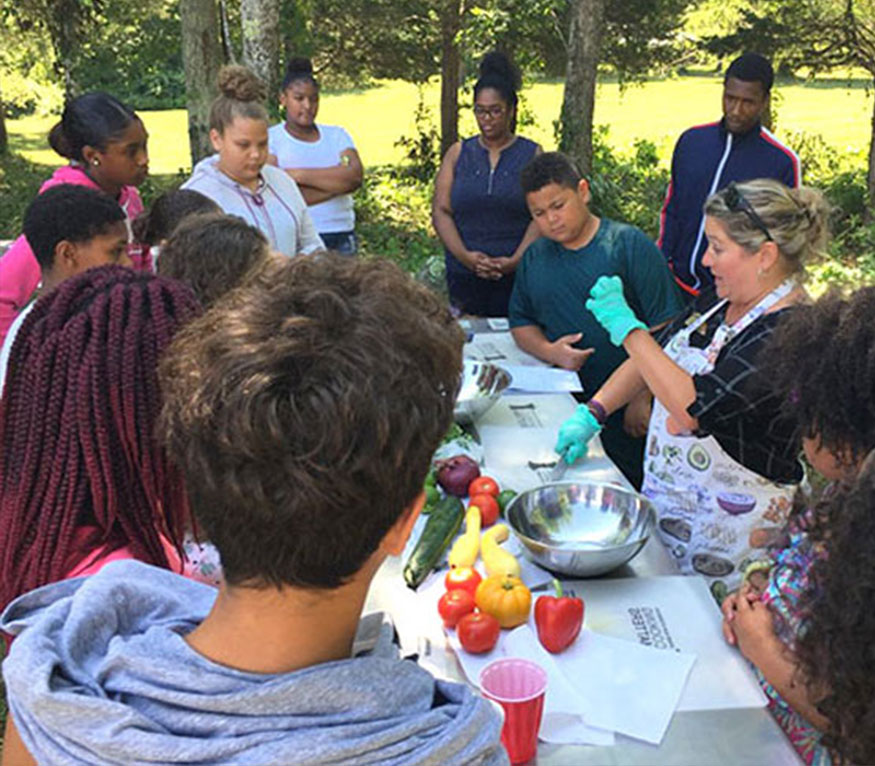
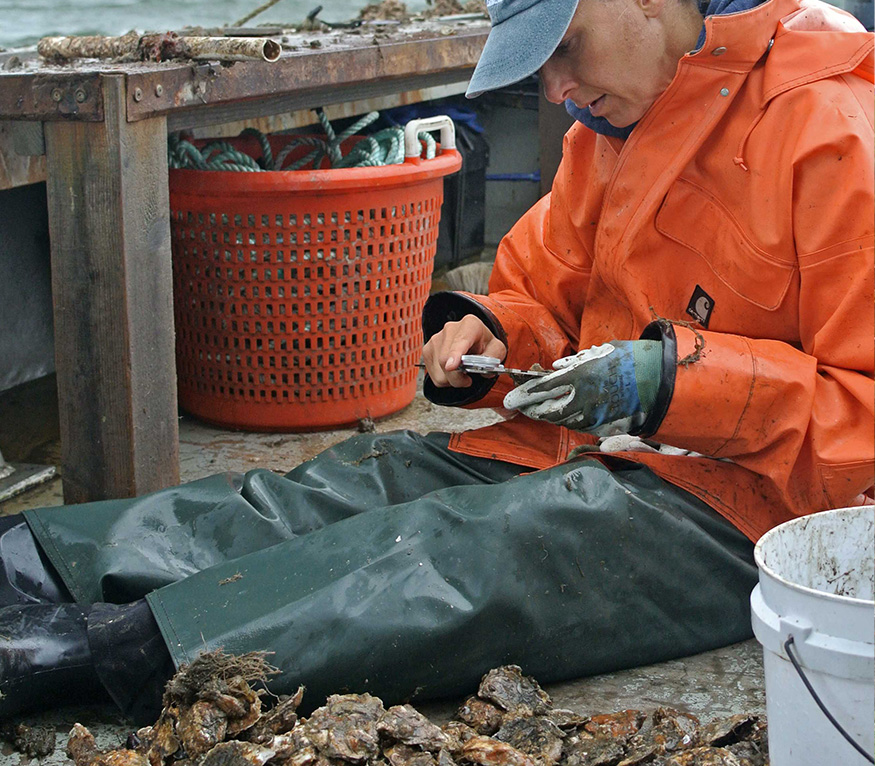
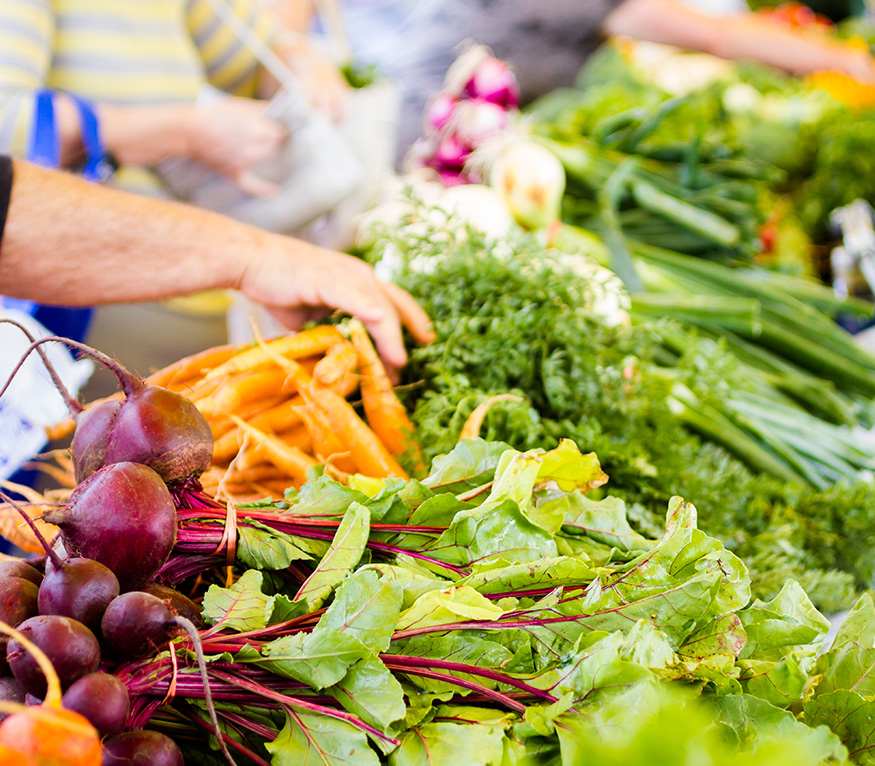
 Emily Alger
Emily Alger Sarah Bailey
Sarah Bailey Nancy Balcom
Nancy Balcom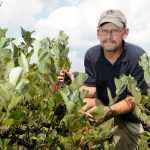 Mark Brand
Mark Brand Bonnie Burr
Bonnie Burr Cristina Connolly
Cristina Connolly
 Dennis D’Amico
Dennis D’Amico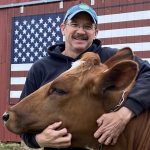 Bill Davenport
Bill Davenport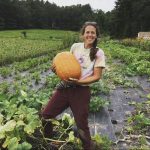 Nicole Davidow
Nicole Davidow
 Steven Geary
Steven Geary  Tessa Getchis
Tessa Getchis Shuresh Ghimire
Shuresh Ghimire Nick Goltz
Nick Goltz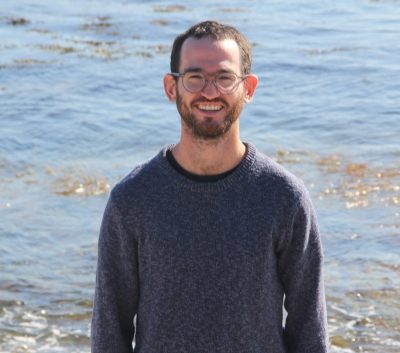 Zach Gordon
Zach Gordon
 Srikanth Kodati
Srikanth Kodati Ana Legrand
Ana Legrand 
 Rigoberto Lopez
Rigoberto Lopez Amelia Magistrali
Amelia Magistrali Jiff Martin
Jiff Martin Richard Meinert
Richard Meinert  Jenifer Nadeau
Jenifer Nadeau Leanne Pundt
Leanne Pundt Rosa Raudales
Rosa Raudales
 Stacey Stearns
Stacey Stearns
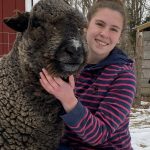 Sara Tomis
Sara Tomis Indu Upadhyaya
Indu Upadhyaya Victoria Wallace
Victoria Wallace MacKenzie White
MacKenzie White Erica Benvenuti
Erica Benvenuti Angela Caldera
Angela Caldera  Valerie Duffy
Valerie Duffy Tina Dugdale
Tina Dugdale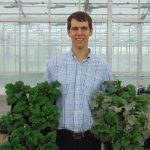 Charles Krasnow
Charles Krasnow Heather Peracchio
Heather Peracchio Mike Puglisi
Mike Puglisi Umekia Taylor
Umekia Taylor Dianisi Torres
Dianisi Torres